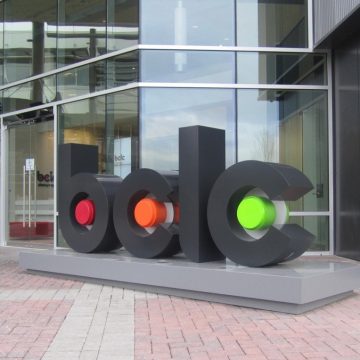
Former Bodog CEO Calvin Ayre recently attended the Canadian Gaming Summit, where he discussed the role of bitcoin in the future of the online gambling industry. He also gave his opinions on the Canadian gambling industry, along with gaming monopolies in general.
In his comments, Mr. Ayre elaborated on why state-run gambling monopolies do not serve the public well. He provided an alternative vision of Canada’s online gambling industry which would serve consumers better — a future which would include private-owned online casinos and poker sites.
How Bitcoin Changes Gaming Regulation
First, Calvin Ayre gave strong opinions on how bitcoin and blockchain payments would change the online gambling industry. In certain ways, bitcoin is going to decrease the role of regulators.
He said in a seperate interview with Stephanie Raquel of CalvinAyre.com, “There will always be regulators, but as bitcoin slowly ‘eats’ the online gambling industry globally, there is going to be less and less need for regulators.”
How Bitcoin Protects Online Gamblers
One of the reasons for stringent online gambling regulation is the need to police deposits and withdrawals. If a player cannot trust whether he or she is going to be paid, then it is pointless to gamble. Identity thieves and the theft of private credit card or banking information is a constant threat, both in the regulated and unregulated online gambling markets.
Through shared public ledgers (blocks), private keys, and “mining” through a distributed consensus system, blockchain payments are a better way to make fast and secure online payments.
Due to way blockchain payments are made, it is impossible for identity thieves to steal payment information in a purely electronic format. A bitcoin account’s encryption constantly changes, depending on new transactions. A player keeps their bitcoin passwords in a secure offline or USB-type electronic container, but these are not available to electronic thieves.
Why Gaming Monopolies Do Not Help Consumers
The Bodog founder was asked what he thought of the state-run gaming monopolies in Canada, such as the British Colombia Lottery Corporation (BCLC). The former gaming executive said that he was not a fan of gaming monopolies, though he stopped short of calling for an end to them.
Instead, Mr. Ayre said he would like to see Canadian provincial government foster competition between the state-run and private gaming companies. Ayre said, “Governments need to decide whether they are creating it for their interests or the interests of the consumers. If you look at all the industries globally, it’s very consistant that government monopolies just do not deliver value to consumers.
“So, if the question is, ‘How can the industry deliver value to consumers,’ then clearly they have to put proper third-party regulators in place who would then regulate their company, as well, then open it up to competition from the private sector.”
PlayNow.com Online
He added that the British Columbia Lottery Corporation’s PlayNow.com website is not a regulator, but is instead is a pure operator. Given that fact, a state-run gaming company like the BC Lottery should not play the role of a regulator.
Instead, a third-party regulator should be introduced which oversees the BC Lottery’s gaming activities, along with those of the private online gaming companies. Fair competition would provide the same or better tax revenues for the government of British Columbia, due to the combined BC Lotto and private online gambling site revenues, while providing a better gaming experience for consumers.
Most online gamblers would agree with Calvin Ayre on the role of state-run gaming monopolies. Lotteries in general have the worst odds any gambler could face, odds so bad that no private company would be allowed to offer them. When the game morphs from lotto tickets to online casinos, poker sites, bingo, or sports bets, the lotto company’s attitudes towards gamblers does not change all that much.
Why Third-Party Regulation Is Needed in Canada
In short, a company like the British Columbia Lottery Corporation and its PlayNow brand tend to view online gamblers as a pure tax resource. Commerce works best when animated by enlightened self-interest, but an operator might not always see it that way, which is why some other method is used by governments to police gaming.
It is not uncommon for private businesses to see it customers as a resource, too, but that is why consumers traditionally have called on their governments to provide third-party regulation of their business — whatever industry it might be. Having the Canadian lottery companies police themselves is like playing hockey against an opponent who also serves as referee of the match.















